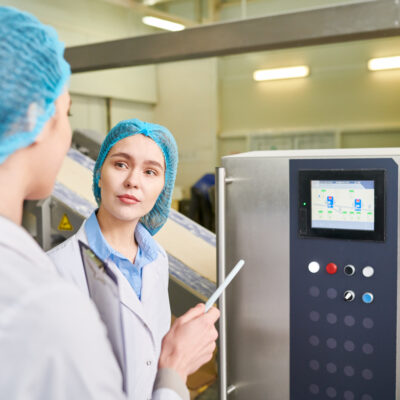News

CONGRATULATIONS TO GUS HAGEDORN FOR BEING SELECTED AS THE 2024 JAMES STOTT ENGINEERING SCHOLARSHIP WINNER!
ECS Scholarship recipients demonstrate outstanding high school leadership and academic achievements with promise in the Engineering Industry. Gus Hagedorn is a senior at Forest Park Jr.-Sr. High School and he’s maintained a 4.0 GPA. He’s been recognized as valedictorian of his class. He comes from a family of engineers and has further explored this passion through classes, clubs, and internships. He has also built drones and robots such as an automated recycling sorter and a pancake flipper. Gus is a dedicated athlete in soccer, as well as track and field. He’s in multiple extracurricular clubs and teams such as the academic bowl, National Honor society, and more. He is in the Vincennes University Automation Robotics program. He was awarded the IHSAA C. Eugene Cato Mental Attitude Award for his leadership and positive outlook. He will study Electrical Engineering at Purdue University. Best of luck in your studies and as you pursue your career, Gus!

Benefits of a Campaign Manager
Batch processing facilitates the repetitive, tightly controlled manufacture of many things. This type of operation is ideal for large scale manufacturing where products are assembled and modified in a series of stages or steps. When connected to a batch management software system, the number of ingredients, execution stages, and degree of processing complexity which can be handled by relatively unsophisticated operators can be extraordinary. The typical end results for manufacturers are lower cost per unit products with tight quality control and meticulous records of production.
Enterprise resource and scheduling systems are ubiquitous to modern manufacturing organizations. These are frequently mated to plant floor automation systems. For simple batch operations with savvy operators this task can be straightforward, particularly when aided by a batch management solution. However, in operations that require rapid processing or changeover between many in-progress batch orders, this can be challenging. The same is true if batch processing requirements for a single order are large in either complexity or an amount of time that spans beyond the purview of a single operator or team. Integration between the master resource and scheduling system and the batch operating environment can be enhanced using a campaign manager.
Read More | Posted In: Bakery Industry, Beverage Industry, Blogs, Chemical Industry, Consumer Goods, Distilleries, FactoryTalk Batch, Food Industry, Inductive Automation, Life Science Industry, Metals, Metals Industry, News

ECS is thrilled to be named “One of Indiana’s Best Places to Work” for the fifth consecutive time!
ECS is thrilled to be named “One of Indiana’s Best Places to Work” for the fifth year in a row!
A multitude of industries from across the state are represented on the 2024 Best Places to Work in Indiana list – with a record number 193 Hoosier businesses recognized, including more than 90 newcomers from last year. This marks the 19th edition for the Indiana Chamber of Commerce initiative.

12 Batch Implementation Design Considerations
Batch systems are used for maximizing quality control, minimizing cost, and reducing loss by manufacturing smaller batches compared to a mass production model, which is why companies in the food and beverage, pharmaceutical, and chemical industries rely on them. The audience of a batch system is varied, and therefore the proper implementation of a batch system needs to consider many factors. From the Plant Manager, Operations, Engineering, and Maintenance to the Operators, all these personas have unique needs that must be considered.
The best practices dictated by standards such as ISA 88 and ISA 95 provide a great guideline or starting point, but these standards do not prescribe how to implement the details of a solution. Therefore, the following is intended to highlight some of the considerations for a system design.

Creating a Robust Equipment Model for Optimal Plant Performance
A plant’s capabilities of what and how products can be manufactured there reside in the capabilities of its equipment, materials, and personnel. These capabilities are captured by the Equipment Model as defined in ISA 88 & 95. Once you capture these capabilities, they are exposed to the recipe author to define how to execute the product manufacturing workflow, which is detailed in the ISA 88 Procedural Model.
Having a well-defined Equipment Model is paramount to enabling the plant’s maximum capabilities while providing the recipe author and operators with an intuitive experience. The Equipment capabilities definition should include the activities that the automation controls system can perform (i.e., Add Water) as well as the activities performed by the operators and other personnel (i.e., Manual Additions, Lab Sample Data, etc.).

Read More | Posted In: Bakery Industry, Beverage Industry, Blogs, Chemical Industry, Consumer Goods, Distilleries, Inductive Automation, Life Science Industry, Metals Industry

A Trusted Advisor Cements Their Value During Project Startups
Engineering projects may take extended periods of time to develop and physically install, often with macro progress being tough to gauge on a day-to-day basis. These efforts come to a head with a flurry of activity in the final hours before “go live”. Tradesmen flutter about making final adjustments to installed bulk hardware and intricate instruments, electricians frantically make and test terminations, and supervising engineers and integrators follow about ensuring that checklist items are noted and addressed. These activities can resemble an orchestral presentation that might span multiple shifts for days and weeks on end. It is at this time that the systems integrator proves their value and clients learn that having a true trusted advisor is critically important to success.
There was a time where simple catch all language could be inserted into automation project contracts and a client could fairly expect an integrator to ensure that a system was complete. Language like “systems integrator must include all miscellaneous items required to make a complete system” would be included in specifications. This verbiage would cover small things like signal conditioning hardware and loop tuning labor and/or tools and it was reasonable to expect that the integrator could include “everything”. The definition of complete has changed considerably over the last decade. Factories today are far more complex, and the plant automation systems are interwoven into every part of many organizations. Protection language like those mentioned before would be wholly inadequate in covering the breadth of items that intermingle with the controls today. Furthermore, attempts to bind project contracts with far-reaching, boilerplate language would leave enormous gaps in functionality that would render most systems a shell of what is truly possible with modern technology.
Read More | Posted In: Bakery Industry, Beverage Industry, Chemical Industry, Consumer Goods, Distilleries, Food Industry, Life Science Industry, Metals Industry, News

ECS Delivers True Long Term Success as Trusted Advisors
People and organizations leverage trusted advisors in all facets of life. Whether it is something as commercial as an auto mechanic or as intimate as a primary care physician, attorney, or wealth advisor, trusted advisors play a role just about everywhere. They maintain deep, current knowledge in specialized fields, and they stand ready to support those in need. They are driven by excellence, thinking beyond themselves or their own organization and focus on the broader environment. Where their focus intersects with the needs of a client, a true trusted advisor relationship can take hold.
Control systems integration is young but maturing when compared to many other functions in legacy buildings and operations. The discipline, which barely existed a generation and a half ago, has become the technological focal point of modern manufacturing. There are no lulls or definable steps as technology continually advances at a dizzying pace. What started as ways to simplify wiring and logic applied to flexibility in controls has evolved into a holistic environment which links manufacturing, operations, and supply chains via a web of connected people and equipment. Manufacturers leverage related professionals each day to stay at the edge of technology and to apply it effectively.
ECS Solutions (ECS) has been around since the dawn of the systems integrator-for-hire concept. Our success has been driven by working collaboratively with our clients as true strategic partners. We know that enduring bonds do not develop by accident nor out of contractual obligation. Our clients expect that we know not only where technology is today, but also where it is going. They leverage our extensive knowledge and experience in ways that address both their immediate needs and their continuing objectives.
Read More | Posted In: Bakery Industry, Beverage Industry, Blogs, Chemical Industry, Consumer Goods, Distilleries, Food Industry, Life Science Industry, Metals Industry, News

KNOW YOUR LOOP BEFORE YOU ATTEMPT TO TUNE YOUR LOOP – PART 2
In the last article for this topic, we discussed the importance of field data collection and the importance of a methodical approach to PID tuning. I introduced the concept of the bump test and that its results would help guide the steps and equations used in proper tuning. Here I will explore that concept in greater detail. At ECS we use a visual tool for data collection in every instance. The tool may be part of a controller suite, or it may be stand-alone but, in any case, it is imperative to capture accurate information about the performance of your system before planning and then programming a solution.
In the interest of time, this article will focus on tuning concepts for self-regulating loops as they make up the majority of applications in the industrial field. A common example of this type of loop is a flow control which varies flow through a pipe via either variable speed control on a pump or a position-controlled valve. In this example, the flow can be adjusted by speed adjustment of the pump or position of a valve and the result of the change ordered from the controller is stable and is generally fast and repeatable.
Read More | Posted In: Beverage Industry, Blogs, Chemical Industry, Consumer Goods, Food Industry, Life Science Industry

Innovative Tools for the Evolving Systems Integrator
The personnel challenges facing virtually every industry over the last few years have been nothing short of astonishing. Proper candidates have become increasingly difficult to court and bring on board. New staff in key roles are tasked to accomplish more with fewer floor operators and technology is increasingly leveraged to close the resulting gaps. This is not unique in history although it may seem that way due to the current media deluge surrounding business intelligence and general-purpose visibility software that makes life easier, smarter, and generally more efficient.
Industrial software is again playing a leading role in the current intelligence revolution. Inductive Automation didn’t invent floor supervisory (SCADA) software, nor did they invent the first responsive, general-purpose web software. However, their current offerings certainly do marry these concepts together in a way that hasn’t existed in industry before. Since 2010 their award-winning Vision Module has enhanced the experiences of factory floor users everywhere, easily connecting complex factory controllers to databases, alarm and reporting systems, and intuitive visualization tools. This product is robust, proven, and works very well for users “inside the industrial network” of many facilities. Today this is coupled with the newer Perspective Module which is an equally powerful tool for use in mobile-responsive applications. For situations where a user may be “outside the industrial network” or simply need to utilize a variety of hardware platforms like PCs, phones, or tablets, Perspective provides an ideal solution.
Read More | Posted In: Bakery Industry, Beverage Industry, Blogs, Chemical Industry, Consumer Goods, Food Industry, Inductive Automation, Life Science Industry, Metals Industry, SCADA

ECS Solutions and Inductive Automation Deliver Solutions for Latin America
At ECS Solutions, Inc., (ECS) we’re seeing a change in how the Latin American market is approaching manufacturing operations. The region is one that has traditionally addressed challenges by adding personnel in almost any situation. This mentality is evolving in the face of a rapidly growing population and the associated demands for things like regionally processed food and beverage products. Increasingly, companies are using technology to streamline operations.
As is usually the case, the correct solutions lie with partners who have the right staff and the right tools. At ECS we believe that we can deliver both via our team and with products offered by Inductive Automation. ECS is chiefly focused on batch industries, and this has led us to decades of success in delivering solutions in industries like food processing. Our team now includes multiple native Spanish-speaking personnel, several of whom reside within the Latin region in places like Columbia and Venezuela. From initial project discussions, we can provide personnel with deep expertise to explore options with clients in their native tongue. Execution of projects occurs under project management from our personnel within the region along with local strategic partners and backend support from our home office and elsewhere. The client experience is with genuine, local ECS subject matter experts and project managers.

Know Your Loop Before You Attempt to Tune Your Loop
PID (proportional, integral, derivative) control algorithms are probably the most commonly used process control strategies in the industry. PID controllers or code are used to optimize process control, providing the means to ensure product stability and company profitability. These functions exist in small but powerful standalone controllers and as part of the instruction set of most modern large-scale programmable controllers. The code within PID controllers is frequently used in tandem with other control functions to create both simple and complex control systems.
PID control has existed for decades and there are many tools available to help implement and tune systems. Thus, this is generally easy to deploy in most situations. Straightforward methods exist to bring most processes into some degree of control. Higher-order analysis and techniques are needed for more complex control loops, products, or systems. Other factors must be considered like upstream and downstream operations and energy consumption. Furthermore, safety and regulatory items must be examined as well as these control loops and associated equipment do not exist in a vacuum. Volumes have been written about detailed techniques for tuning loops so this article will cover only basics in preparation for a later piece on the tuning of atypical loops.
Read More | Posted In: Beverage Industry, Case Studies

